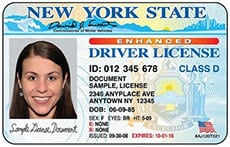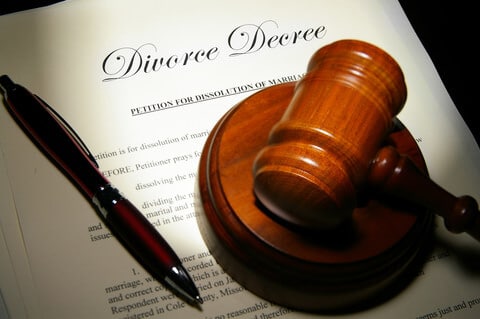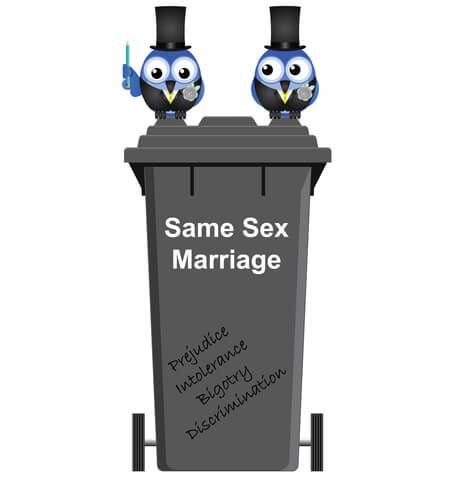by Robert E. Hornberger, Esq | Feb 25, 2014
 Following their divorce, many Long Island women consider changing their last, or surname, back to what it was prior to their marriage. For many women, this can be an important step to separating themselves from their former husband and enables them to feel completely able to move forward in their new life.
Following their divorce, many Long Island women consider changing their last, or surname, back to what it was prior to their marriage. For many women, this can be an important step to separating themselves from their former husband and enables them to feel completely able to move forward in their new life.
This, of course, is a personal decision and there are many factors you should consider before taking steps to change your last name back to your prior family name. If you and your partner did not part ways amicably, changing your name back to your maiden name can be liberating and empowering. It can be a step toward re-forming your identity as separate from your marriage.
On the other hand, if you and your partner have children together, you may consider how this may affect your children. Having a different last name than your child can create confusion for that child and you may opt to not change your name so you can have the same last name as your children. Remember again, that whichever you chose is a purely personal decision. If you do chose to use your maiden surname, the following will be a helpful guide on how to achieve this goal.
When Can I Change My Name?
First, it is important to recognize that your name cannot be legally changed until after the divorce has been finalized. Therefore, while you may wish to begin this process as soon as you begin the divorce proceeding, knowing ahead of time that you will have to wait will allow you to spend your time taking care of the more pressing matters of the divorce.
Before your divorce judgment is finalized, your divorce attorney should review the agreement to ensure that it states that you have the right to use your maiden name after the divorce. As long as the divorce judgment states this, and as long as you find all the other terms agreeable, a judge will sign it and you subsequently must file it with the county clerk’s office.
What Do I Do After My Divorce Judgment is Filed with the County Clerk’s Office?
Before you leave the county clerk’s office, be sure to request certified copies of the judgment of divorce. Without these certified copies, you will not be able to complete the name change process.
 Step 1: Social Security Administration. After you have obtained the certified copies of your divorce judgment, your first stop should be to contact the Social Security Administration Office. As you likely know, everything you do is connected to your social security number. Therefore, changing the name attached to your social security number in the beginning will make the rest of the process flow more smoothly.
Step 1: Social Security Administration. After you have obtained the certified copies of your divorce judgment, your first stop should be to contact the Social Security Administration Office. As you likely know, everything you do is connected to your social security number. Therefore, changing the name attached to your social security number in the beginning will make the rest of the process flow more smoothly.
 Step 2: Department of Motor Vehicles. Your second stop on the route to your name change should be the Department of Motor Vehicles. For most Long Islanders, your driver’s license is your main form of identification. So now the identification you use everyday would contain the name you wish to be referred.
Step 2: Department of Motor Vehicles. Your second stop on the route to your name change should be the Department of Motor Vehicles. For most Long Islanders, your driver’s license is your main form of identification. So now the identification you use everyday would contain the name you wish to be referred.
 Step 3: Bank Accounts, Credit Cards, Employer, Insurance, Insurance. After the Social Security Administration and the Department of Motor Vehicles, think of where else you have used the name you are in the process of changing. It is likely you have taken out credit cards, opened bank accounts, and your employer will have you on its payroll with this name. Consider your health insurance, life insurance, car insurance, etc. What about your passport? All of these things should be changed.
Step 3: Bank Accounts, Credit Cards, Employer, Insurance, Insurance. After the Social Security Administration and the Department of Motor Vehicles, think of where else you have used the name you are in the process of changing. It is likely you have taken out credit cards, opened bank accounts, and your employer will have you on its payroll with this name. Consider your health insurance, life insurance, car insurance, etc. What about your passport? All of these things should be changed.
 Step 4: Gym, Doctor, Hair Salon, etc. Additionally, think of more casual places you have used this name, such as for your gym membership, hair salon, and doctor’s offices. While these have no legal significance, changing them at these locations further separates you from the identity you held while you were married and minimizes any confusion with your other forms of identification. For example, if you pay for your gym membership with a credit card in your maiden name, but your account is listed in your married name, you may find yourself answering unnecessary questions.
Step 4: Gym, Doctor, Hair Salon, etc. Additionally, think of more casual places you have used this name, such as for your gym membership, hair salon, and doctor’s offices. While these have no legal significance, changing them at these locations further separates you from the identity you held while you were married and minimizes any confusion with your other forms of identification. For example, if you pay for your gym membership with a credit card in your maiden name, but your account is listed in your married name, you may find yourself answering unnecessary questions.
What About My Children? Is It Possible to Change Their Names as Well?
Changing the name of a minor child after a divorce is not done in the same manner as changing your own name. To change the name of a minor child, a court petition must be filed. While you can make the decision on your own to legally change your name, a judge has discretion over whether or not to permit the name change of a minor child. In coming to his or her decision, a judge will consider what is in the best interests of the child. The judge will weigh the relationship the mother has with the child against the relationship the father has with the child and if a name change would greatly alter the child’s sense of self. While it may seem unfair that a judge has the power to make such an important decision, it is important to remember that the judge must consider that during a difficult divorce, a person’s judgment can become clouded by emotion. The court understands that in some cases a mother could desire to change a child’s name simply to hurt the father, or vice versa, but not realize that doing so may also hurt the child. Therefore, it is important to have a neutral third party make such a decision.
Have Questions About Changing Your Name?
Do you have questions about changing your name after your divorce? Give the compassionate attorneys at Robert E. Hornberger, Esq. P.C. a call at 631-923-1910 for a complimentary consultation. We will speak to you about any aspect of your divorce, including steps you can take to prepare you for your life post-divorce.
by Robert E. Hornberger, Esq | Feb 18, 2014
 If you and your soon to be ex-spouse have decided to use divorce mediation as your method of divorce resolution you both may be wondering what role, if any, a divorce attorney plays in the mediation itself. You are not required to have a divorce attorney mediate your divorce, but you and your partner may decide to hire divorce attorneys to assist you both in the process of divorce mediation if your mediator is not also a divorce attorney. Because you know that you and your partner control the negotiating process during divorce mediation, you may be wondering what role, if any, a divorce attorney can play throughout the process.
If you and your soon to be ex-spouse have decided to use divorce mediation as your method of divorce resolution you both may be wondering what role, if any, a divorce attorney plays in the mediation itself. You are not required to have a divorce attorney mediate your divorce, but you and your partner may decide to hire divorce attorneys to assist you both in the process of divorce mediation if your mediator is not also a divorce attorney. Because you know that you and your partner control the negotiating process during divorce mediation, you may be wondering what role, if any, a divorce attorney can play throughout the process.
Before you and your partner even decide upon divorce mediation, either one, or both, of you may have consulted a divorce attorney. If you are considering the idea of using a divorce attorney in addition to your divorce mediator, it is best to consult this attorney in the beginning stages of the process. The divorce attorney can fully explain what divorce mediation is and what it entails, which may make it easier (or more difficult) to choose mediation. If your divorce attorney is not practiced in divorce mediation, he or she may also be able to recommend divorce mediators, however, you should be aware that divorce attorneys who are not also divorce mediators are more likely to steer you away from divorce mediation simply to earn your business for their practice.
If you do consult a divorce attorney during the initial stages of your divorce mediation, you may wish to keep this divorce attorney throughout the entire process. This attorney may advise you of the law in certain areas, help you review any agreement before you sign it, and eventually prepare the final documents that will be entered with the court so your divorce can be legalized.
Of great importance during the divorce mediation process is the fact that the divorce attorney should not speak for you or your partner. Rather the divorce attorney is present during the mediation as an advisor and support system. If you find yourself confused about parts of the mediation agreement or are undecided about what may be the right decision, you have the option to discuss the matter with the divorce attorney in private. He or she may make suggestions or just simply serve as a listening ear for you to discuss the issue aloud with someone and hopefully be able to reach a conclusion with which to go back to the mediation. Additionally, you may be willing to enter into agreements during the mediation without realization of the risks involved. The divorce attorney is able to explain these risks to you, and help you weigh them against the benefits to make the best decision possible.
Once you have decided to hire a divorce attorney to assist you during your mediation process, you may naturally be wondering if he or she will attend every mediation session with you. Like most other decisions during the divorce mediation process, this is a personal choice that you will discuss with your divorce attorney. Keep in mind that your divorce attorney will need to be compensated for his or her time, so the more sessions your divorce attorney has to attend, the larger your legal bill.
If you feel confident in your wants and desires and your ability to clearly communicate these to your partner and the mediator, you may decide to speak to your divorce attorney only before and after the mediation sessions. On the other hand, if you feel as though you may get overwhelmed and need to step out of the room and have someone there to talk with so you can vocalize your thoughts, you may decide to have your divorce attorney accompany you to every divorce mediation session. However, if your divorce lawyer does attend the mediation, it is important to remember that he or she is not there to participate in and make arguments for you. Rather, he or she is there solely for guidance and support, and as a potential legal advisor.
If your divorce mediator is not a divorce attorney, once you and your partner reach an agreement in your mediation, your attorney will review that agreement, and potentially prepare the finalized documents for the court. This way, you will be reassured that the agreement is valid and enforceable.
As you might imagine, having a separate attorney in addition to your divorce mediator is going to add to your legal bills. The less expensive alternative is to find a divorce mediator who is also an experienced divorce attorney, familiar with the latest developments in divorce law and practice. This kind of mediator will be able to advise you as to the legal ramifications of any agreements reached during your mediation at the mediation, and not in a separate session with an outside divorce attorney.
To learn more about Divorce Mediation on Long Island and how it can save you time, money and stress, visit this page: How Divorce Mediation Works and its Benefits for Families in Nassau, Suffolk, Long Island. If you would like to learn more about Divorce Mediation on Long Island, call the divorce law firm of Hornberger Verbitsky, P.C. at 631-923-1910 or fill out the short form on this page for a complimentary divorce mediation consultation. The compassionate divorce lawyers at the firm are skilled at all methods of divorce resolution, including litigation, mediation and collaborative divorce.
For more information, visit our Comprehensive Guide to Long Island Divorce Mediation.
SCHEDULE YOUR FREE CONSULTATION TODAY
Call 631-923-1910 or fill in the form below

Schedule your complimentary consultation and case evaluation with our experienced attorneys today. When you call, you’ll speak to our friendly Client Services Director, who will be able to answer your general questions and set up your appointment with an attorney who specializes in your unique case.
At your meeting, your attorney will describe the many options available and determine together which is the right solution for you. By the end of this meeting we’ll all understand how we can best help you to move forward.
No Cost or Obligation
There is no cost or obligation for this initial consultation. It is simply an opportunity for us to get to know each other, answer your questions and learn if Hornberger Verbitsky, P.C. is the right law firm for you.
by Robert E. Hornberger, Esq | Feb 4, 2014
 Finding yourself faced with an impending divorce? If so, you and your soon to be ex-spouse likely have many questions. One of those questions may be whether divorce mediation is the right choice for you? Or better yet, what is divorce mediation?
Finding yourself faced with an impending divorce? If so, you and your soon to be ex-spouse likely have many questions. One of those questions may be whether divorce mediation is the right choice for you? Or better yet, what is divorce mediation?
Divorce mediation is a voluntary process and method of achieving a legally binding divorce, most often in less time, with less expense and with less stress than a typical litigated divorce. In divorce mediation, you and your soon to be ex-spouse will meet with your divorce mediator, either with or without attorneys, but either way without involving the court system, in order to come to a mutual agreement about the practical terms of the divorce.
While divorce mediation is a better divorce solution for most Long Island couples, it is not for everyone and you and your partner must understand what’s involved before making any decision.
Should We Consider Divorce Mediation?
Because divorce mediation involves you and your partner coming to a mutual agreement on your own terms, it is essential that you both are either already in accord with your wants or believe you will be able to reach a mutual agreement. It is essential that you and your partner can communicate with each other in order to come to agreement on the practical matters that need to be resolved to end your marriage. This does not mean that you have to be in complete agreement before you enter mediation, but you both need to be willing to listen to your partner and make reasonable compromises that are in the best interest of you and your family.
While not necessary, it can be helpful if both you and your spouse have been involved in handling the finances throughout the marriage. If you are both aware of your current financial situation and obligations, there is less chance of surprises or unexpected results.
If you and your soon to be ex-spouse have feelings of resentment or animosity toward one another, divorce mediation may be a more difficult experience. However, it is not crucial that you and your soon to be ex-spouse are on the same page regarding all issues surrounding the divorce before deciding on divorce mediation rather than hiring divorce attorneys and litigating your divorce in court. When going through a divorce, it is almost inevitable that there will be disagreements along the way; so long as these are minor or things that are capable of resolution with time, divorce mediation is something you should consider.
What are the Benefits of Divorce Mediation?
Cost: Two Attorneys = Twice the Fees. Perhaps the most important issues for Long Island couples going through a divorce is the financial aspect of the divorce itself. This is one of the major benefits of divorce mediation: it is usually much less costly than divorce litigation. If taking the typical route of litigating your divorce in the Nassau County or Suffolk County court system, both you and your partner would need to hire, and therefore pay for, for your own divorce attorney, which may have the potential to cost tens of thousands of dollars. Divorce mediation on the other hand, is likely to cost a fraction of the price.
Time: Months Versus Years. With coordinating attorneys’ schedules, motions, responses to motions, scheduling court dates, etc., not to mention the adversarial nature of divorce litigation, litigating your divorce often take years to resolve and conclude. Because you and your spouse work together with your divorce mediator to resolve your divorce through mediation, you are in control of how long it takes. Your mediator works to keep the sessions non-adversarial and productive to conclude your divorce as quickly as possible. With divorce mediation, your divorce can be finalized after a few sessions with the mediator if you and your partner are able to easily agree on the terms.
Confidential: Better for You and Your Children. Another significant benefit of divorce mediation, especially if you and your partner have children, is the fact that any divorce judgment reached by mediation is confidential. If your divorce is litigated in court, it becomes public record, and therefore, all information that was discussed during the divorce also becomes public record – including your finances, assets, income, any fault asserted, and all other personal issues that may have been discussed. If you do have children, it is likely you are friendly with other parents in the neighborhood, therefore, it may be beneficial to you and your partner to keep such information private and allow the divorce to remain a personal, not public, matter.
Non-Confrontational: Low-Stress. Divorce mediation itself is a friendlier and non-confrontational process as opposed to the much more adversarial nature of a litigated divorce through the court system. If you and your partner have the type of relationship that allows for you to consider divorce mediation initially, it is likely that neither of you wish to drag the other through the painful stages of litigation. By choosing divorce mediation, you and your soon to be ex-spouse only need to sit down in a room and discuss both of your wants and needs, there is no need for a divorce attorney to fight for more for either of you. Through divorce mediation, you are more likely to minimize any feelings of hostility toward one another and come away with an agreement you can both live with going forward.
Do We Still Need to Hire Divorce Attorneys?
There are a number of different types of divorce mediators who can help you; some are divorce attorneys and others are not. If you choose to use a divorce mediator or divorce mediation service that is not a licensed, practicing divorce attorney, you might want to have a divorce attorney look over your final divorce agreement to be sure you are each protected under New York State law. Only a divorce attorney practicing in the Nassau County and Suffolk County courts is likely to be thoroughly familiar with the latest developments in the law and have the experience to know the best way to protect you in your final divorce agreement.
To learn more about Divorce Mediators on Long Island and how they can save you time, money and stress, visit this page: Divorce Mediator Long Island | Nassau County & Suffolk County. The Long Island divorce mediators at Hornberger Verbitsky, P.C. are practicing divorce attorneys in Nassau County and Suffolk County, NY. While we recommend divorce mediation for our clients for whom this is the best solution, we litigate divorce regularly and are therefore familiar with the ins-and-outs of the court system and the latest developments in divorce law. Give us a call at 631-923-1910 for a free consultation. We’ll discuss the specifics of your case and let you know if you and your spouse are good candidates for divorce mediation or another method of divorce resolution or an alternative resolution method.
by Robert E. Hornberger, Esq | Jan 23, 2014
‘Irretrievable Breakdown’ a New Grounds for Divorce in New York
 In 2010, the New York State legislature amended the state’s Domestic Relations Law in a way that effects divorce proceedings in Nassau County or Suffolk County, Long Island, NY courts. The legislature added “Irretrievable Breakdown” as a new grounds for a divorce.
In 2010, the New York State legislature amended the state’s Domestic Relations Law in a way that effects divorce proceedings in Nassau County or Suffolk County, Long Island, NY courts. The legislature added “Irretrievable Breakdown” as a new grounds for a divorce.
Under the statute, an action for divorce can be initiated if the husband and wife relationship has broken down irretrievably for at least six months. Irretrievable Breakdown of the marriage allows for divorce if you and your partner find that you are in fact incompatible, and therefore enables a No-Fault divorce. Because of the Irretrievable Breakdown clause, you do not need to prove wrongdoing on the behalf of your spouse; rather you can unilaterally begin a divorce proceeding so long as the required six-month period has passed. The factors that can be applicable for this type of divorce may range anywhere from personality conflicts, trust issues, financial difficulties, or simply constant fighting. This may be extremely helpful if your situation does not involve abandonment, adultery, your spouse having been imprisoned, or any other specific grounds present in the New York Domestic Relations law.
What Must be Alleged to Claim Irretrievable Breakdown on Long Island?
In a general action for divorce, New York’s Domestic Relations Law requires the divorcing party to specifically state the type of misconduct alleged, including circumstances, location, and time of any event, but what must be alleged to claim Irretrievable Breakdown on Long Island? Fortunately for those seeking to allege irretrievable breakdown in their divorce proceedings, a recent appellate division decision, Tuper v. Tuper, has shed some light on this. When asserting divorce due to Irretrievable Breakdown, the individual filing for divorce must only show conclusory allegations under oath; there need not be specific accusations, details, or a play-by-play of the breakdown of the marriage. Therefore, when filing for divorce on Long Island, be sure your divorce attorney submits an affidavit in which you have asserted that the husband and wife relationship was broken down irretrievably for at least the required six-month period. Simply stating to your divorce attorney that the marriage has broken down is insufficient: this admission must be done under oath. This is different from asserting a divorce action based upon adultery or cruel and inhumane treatment, where specific facts need to be alleged.
Furthermore, your divorce attorney should be aware that divorce based on irretrievable breakdown cannot be granted until all economic and visitation issues have been resolved. This includes not only issues concerning equitable distribution, child and spousal support, fees due to counsel and any expert witnesses, but also those revolving around child custody and/or visitation rights. This is important to recognize and resolve these issues in advance to ensure that your divorce process can be settled as quickly as possible.
How Long Do I Have to Commence the Action?
Typically, an action for divorce has a statute of limitation of five years, beginning to run either from the date of the complained of incident or the date of discovery, depending upon the grounds for divorce. When filing for divorce based on Irretrievable Breakdown of the marriage, it is difficult to cite an exact moment from which a statute of limitations should begin to run. This is because it is difficult to cite the exact moment of the breakdown of the marriage, which would be the moment at which to start the five-year statute of limitations. Due to this, and the fact that the breakdown is seen as one continuing event, you can bring your Irretrievable Breakdown divorce action at any time after the required six-month period.
What if My Spouse Contests the Allegations?
As with any other grounds for divorce under New York’s Domestic Relations Law, alleging divorce on the grounds of Irretrievable Breakdown is subject to contest from your partner, and accordingly, a jury trial. If your spouse contests the fact that the marriage had broken down for over six months, it is his or her right to a trial and potentially a jury trial.
What Does This Mean For Me?
We know that sometimes marriages do not work, and this is sometimes no one’s fault. If you find yourself in such a situation for at least six-months, and you decide that divorce is the proper route, Irretrievable Breakdown grounds for divorce may be of interest to you.
The Long Island divorce lawyers and divorce mediators at the law firm of Robert E. Hornberger, Esq., PC have extensive experience with all grounds for divorce in Nassau County and Suffolk County courts. For more information about the best way to settle your divorce, please contact us at 631-923-1910 for a free consultation. You’ll be glad you did.
by Robert E. Hornberger, Esq | Jan 9, 2014
 With the rise in divorce rates over the last few decades, the public, political figures, and scholars have all questioned the ease with which married couples can dissolve a marriage through No-Fault Divorce on Long Island and throughout the U.S. People from all walks of live have expressed concern over the increase in single-parent families. Some perceive the rise in divorce rates as a threat to what they consider the “Traditional American Familial Structure”: two parents raising their children collectively. Proponents of preserving “The Nuclear Family” structure argue that single-parent families are severely lacking in the core moral values that the nuclear family has promoted over the past century or more.
With the rise in divorce rates over the last few decades, the public, political figures, and scholars have all questioned the ease with which married couples can dissolve a marriage through No-Fault Divorce on Long Island and throughout the U.S. People from all walks of live have expressed concern over the increase in single-parent families. Some perceive the rise in divorce rates as a threat to what they consider the “Traditional American Familial Structure”: two parents raising their children collectively. Proponents of preserving “The Nuclear Family” structure argue that single-parent families are severely lacking in the core moral values that the nuclear family has promoted over the past century or more.
Is Divorce Immoral?
There have been several theories investigating the question as to why divorce rates have steadily increased over time. One theory in particular suggests that “parental selfishness” is responsible for the dissolution of marriages. They further believe that the prevalence and acceptance of single-parent families itself breeds more single-family households. However, these theories are not universal and are highly controversial. Many others argue that single-parent families should not be stigmatized for being “Non-Traditional”. While controversial, proponents of dual parent families essentially promote that the presence of both parents in a child’s life is critical to maintain a healthy family. They further suggest that supporting or encouraging easy access to divorce, which they believe results in the further breakdown of the traditional family structure, is in a sense immoral because they claim it is damaging to the children of the divorced parents.
Should Parents Sacrifice a Healthy, Happy Life for their Children?
Should Divorced Parents be Shunned?
Traditional Family Value proponents’ belief system revolves around the notion that responsible parents remain married and that this enables them to be self-sufficient, and financially stable. They believe that parents must make sacrifices for their families even if doing so results in spousal inequality or overall unhappiness within a marriage. Ultimately, proponents of this perspective feel that single-parent families are immoral and the public should turn away from accepting such non-traditional families.
Another Theory Regarding the Morality of Divorce
A drastically different theory regarding the morality of divorce attributes personal happiness to an individual’s decision to file for divorce. Rather than condemning non-traditional families for lacking in core moral values, proponents of this theory emphasize that families act responsibly, rather than attempt to maintain the Traditional Nuclear Family structure at any cost. In essence, proponents of this theory are far less concerned with whether a family is considered Traditional or Non-traditional and more concerned with whether the family is adequately supported.
Support for Core Values Within Any Family Unit
This particular train of thought accepts, and even embraces, Non-traditional families, provided the family unit promotes certain core values, including: equality, commitment, support, and nurturance. This type of approach in consideration of the family structure undoubtedly takes into account the fact that Family Law in the U.S. has evolved and changed over the last few decades. It recognizes that finding “Fault” should not have to be established by parties seeking a divorce. Proponents on this side of the argument believe that Fault-based divorce is what is wrong with trying to preserve the nuclear family at all costs. They believe that Fault-based divorce not only makes divorce more difficult legally, but also emotionally and financially and is contrary to the health and happiness of all members of the family.
No-Fault Divorce Helps Resolve Gender Inequality and Domestic Violence Issues
Furthermore, this theory identifies and tries to resolve gender inequality in marriage and in divorce and additionally emphasizes the dangers associated with domestic violence and the damage it can do to the family unit. Lastly, this theory also recognizes the rights of unwed fathers as they pertain to child custody. All in all, this theory is one of progression that promotes the acceptance of all families: Traditional or Non-traditional.
Does Ease of Divorce Promote Relationship Laziness?
Although many would agree that society should be more willing to accept non-traditional families rather than shun them, the question still remains as to whether the reinforcement of the traditional family structure is useful in preserving what American society views as its core “fundamental values”. While suggesting that parties remain unhappily married can have a damaging effect on each member of the family unit, single-parent families do tend to face more adversity than families consisting of two parents raising children collectively. The question seems to be whether individual family members remaining in an unhappy or dangerous marriage face more adversity. Moreover, some may argue that marriage should be considered a serious commitment that should not be taken lightly and that the current trend in the acceptance of the Non-Traditional family promotes a certain lack of seriousness and lack of effort that used to exist in personal relationships.
Evolving Preconceived Notions of ‘Typical’ American Family on Long Island
Whatever the case may be, we cannot deny that most of American culture has changed in terms of how we view the family. Consequently, we must question whether to do away with our preconceived notions of what the “typical American family” ought to look like and accept that one person’s set of moral values can be different from another’s.
Questions? Need No Fault Divorce Help on Long Island?
Do you have questions about No-Fault Divorce, Divorce Mediation, Collaborative or Divorce Litigation on Long Island, NY? We’re here to help. Call us at 631-923-1910 or fill out the short form on this page for a free consultation in our comfortable Melville offices convenient to Nassau County and Suffolk County residents.
by Robert E. Hornberger, Esq | Nov 21, 2013
 Child Custody determinations are a special form of legal dispute in Nassau County and Suffolk County, Long Island, NY. Although there are two official parties to the legal dispute, often the mother and the father, the unofficial third party that is the main concern of the controversy is the child. Because the child is the main concern of the courts, the method used by most states in resolving child custody disputes is what is known as the “best interests of the child” standard. Because this standard only considers the implications on the child as a neutral third party, it is technically neutral and does not favor either the mother or the father in the dispute.
Child Custody determinations are a special form of legal dispute in Nassau County and Suffolk County, Long Island, NY. Although there are two official parties to the legal dispute, often the mother and the father, the unofficial third party that is the main concern of the controversy is the child. Because the child is the main concern of the courts, the method used by most states in resolving child custody disputes is what is known as the “best interests of the child” standard. Because this standard only considers the implications on the child as a neutral third party, it is technically neutral and does not favor either the mother or the father in the dispute.
Is the “Best Interests of the Child” Standard Really Neutral?
Many professionals in the legal field would answer that the current “best interests of the child standard” is not actually neutral in practice. Statistical evidence shows that custody is disproportionally awarded to the mother of the child in most disputes. Statistically, the courts seem to believe that the mother is more often than not the party best suited to care for the child. If this were intrinsically true, there would be no dispute that awarding custody to the mother was always in the best interests of the child. In actuality, however, this is not always the case.
Why Gender Bias in Child Custody on Long Island, NY?
There are several reasons why this gender bias exists in child custody disputes.
- First and foremost, the standard used to determine custody is problematic.
- General public sentiment, and historical judicial sentiment, seems to favor mothers as guardians.
- The combination of the two creates a situation forcing the father to disprove a presumption that the mother is the better guardian, which makes it much more difficult for a father to win custody of his child.
‘Best Interests’ Standard Enables Too Much Flexibility?
Allowing courts to use the best interests of the child standard is beneficial, as it allows for flexibility in child custody decisions. Custody disputes are complicated and unique situations. Allowing judicial discretion in a standard allows the courts to tailor decisions to each unique circumstance. However, this flexibility may also be the downfall of the “best interests of the child” standard. Because a flexible standard lacks objective elements or factors, the ultimate determination lies in the opinion of the individual adjudicating the dispute. Consequently, if a judge, mediator, etc. lacks objectivity; it is his or her opinion that decides the fate of the child.
Discretion Favors Mothers over Fathers in Child Custody Disputes
Such wide discretion would not be problematic if public and judicial sentiment with respect to custody matters were different. However, the general public outlook on custody-related matters seems to be that mothers are naturally better caretakers to their children than fathers. Furthermore, a history of judicial decisions shows that judges share this particular attitude with the public as well. Some courts have even explicitly stated that if all circumstances were equal between the mother and the father, the mother should be awarded custody. Matthew B. Firing, In Whose Best Interests? Courts’ Failure to Apply State Custodial Laws Equally Amongst Spouses and Its Constitutional Implications, 20 Quinnipiac Prob. L.J. 223, 249 (2007). This effectively creates a rebuttable presumption that the mother, all other things being equal, is the better caretaker. As a result, instead of being judged by an equal standard, an unfair burden of proof is placed on the father in custody disputes. With a presumption that the mother is the better custodian, the father is placed in the position of having to prove that the mother is an unfit parent. The “best interests of the child” are considered, but in a different way than intended. The judge is not actually considering, objectively, which parent provides the best situation for the child, but whether the father has proven that the mother is unable to provide the best possible environment for the child.
Gender Bias Due Process Claims Unsuccessful
In addition, gender-biases in child custody determinations implicate several constitutional issues under the Equal Protection Clause and the Due Process Clause. Courts have interpreted the Equal Protection Clause to apply to gender-based inequalities, and the Due Process Clause to protect a fundamental right to privacy in family matters. Child custody has been assumed to be a fundamental right under the Due Process Clause. Although these clauses may seem to give legal merit to a father’s challenge of gender bias in the best interests of the child standard, these challenges have been historically unsuccessful.
“Best Interests” Standard Not Fairly Applied to Fathers
Gender bias in child custody disputes is prevalent, as mothers are awarded custody of their children disproportionately more than fathers in judicial proceedings. While the “best interests” standard is a good method to gauge the best environment for the child involved in a custody dispute, the standard is not always properly and fairly applied by the courts. Therefore, it may be time to reevaluate our societal outlook on child custody and make some real changes that would result in more equitable decisions for fathers.
Questions About Child Custody and Visitation on Long Island?
See this page to learn everything you need to know about Child Custody and Visitation on Long Island.
To learn more about what you need to know about Child Custody on Long Island, visit this page on Child Custody or contact us at 631-923-1910 for a complimentary consultation.
Long Island, NY Child Custody Questions?
Call Us. We’re Here to Help in Nassau & Suffolk
The law firm of Robert E. Hornberger, Esq. P.C. has regularly and successfully represents both mothers and fathers in Child Custody disputes in Nassau County and Suffolk County courts on Long Island. If you have questions about your Child Custody case, give us a call at 631-923-1910 or fill out the short form on this page for a free, complimentary consultation where we can discuss your case and advise you on the best way forward. We’re here to help.
by Robert E. Hornberger, Esq | Oct 17, 2013
 Claims of domestic violence and other issues of marital misconduct are not uncommon in divorce cases in Nassau and Suffolk counties on Long Island, NY. The question debated among many divorce lawyers and other groups in the legal field is whether claims of marital misconduct should be handled within a divorce action or whether the aggrieved should file a separate tort action to recover damages for injuries.
Claims of domestic violence and other issues of marital misconduct are not uncommon in divorce cases in Nassau and Suffolk counties on Long Island, NY. The question debated among many divorce lawyers and other groups in the legal field is whether claims of marital misconduct should be handled within a divorce action or whether the aggrieved should file a separate tort action to recover damages for injuries.
Inter-Spousal Immunity No Longer Recognized in New York
Until the mid 1900s, many states recognized a legal standard of Inter-Spousal Immunity, which provided that spouses could not sue one another for alleged misconduct during the course of a marriage. Today, the doctrine of Inter-Spousal Immunity is no longer recognized as a valid legal theory.
No-Fault Divorce Replaces Fault Divorce in New York
In addition to the eradication of inter-spousal immunity, most states, including New York, have introduced the use of No-Fault Divorce, replacing the traditional practice of granting divorces upon a court finding of fault. These two shifts in legal standards have posed considerable problems for parties seeking redress for marital misconduct.
No-Fault Divorce Proponents Argue Abuse Should Be Taken Out of Divorce
Proponents of No-Fault Divorce reject the notion that tortious conduct, such as claims of abuse, should be addressed during divorce proceedings, since they would undoubtedly assign fault to one of the parties involved in the litigation. Under a Fault-based divorce regime, however, the finding of tortious conduct committed by one party during litigation remained a nonissue, as it served as a component to a divorce proceeding in the past. Consequently, many in the field of Family Law believe that alleged acts of marital misconduct should be filed in separate tort law claims to preserve the integrity of no-fault divorce.
Marital Misconduct Can Affect Equitable Distribution in Divorce …
While New York remains a No-Fault Divorce state, courts will entertain claims of marital misconduct in consideration of equitable distribution in divorce. In the case, Havell v. Islam, the court entertained the allegations of domestic violence in the equitable distribution of marital property. In that case the plaintiff alleged that the defendant, her husband, engaged in abusive behavior throughout their twenty-one year marriage. When the plaintiff informed her husband of her intention to file for divorce, the defendant beat her mercilessly, resulting in severe injuries, which required extensive surgeries and multiple medical procedures. In the consideration of the equitable distribution of marital assets, the court awarded the plaintiff 95.5% of the property in compensation for her injuries. The court’s holding is an example of one way an injured party may seek damages for marital misconduct, but it is not the only way.
… But Not Always
In Hakikkla v. Hakikkla, a New Mexico case, the parties had already divorced when the plaintiff filed a tort action against her former husband for the intentional infliction of emotional distress. The defendant had committed various acts of abuse throughout the marriage, both verbal and physical, however, the court dismissed the claim, finding that the conduct did not rise to the level of outrageous behavior. Due to New Mexico’s no-fault divorce laws, the court declined to associate the tort claim with the facts alleged during the divorce action. Although the plaintiff did not prevail under this particular set of facts, the case demonstrates that tort actions for marital misconduct serve as an alternative to seeking redress in a divorce proceeding.
How to Redress Marital Misconduct? In Divorce or Out?
So, which way of seeking redress for marital misconduct is the appropriate method? The American Law Institute (ALI) recommends that claims of adultery, cruelty and abandonment are non-legitimate issues to be entertained during the course of a divorce proceeding. Essentially, a divorce action should merely serve to consider the distribution of marital assets and nothing else. The ALI further rationalizes that victims of marital misconduct have other outlets available to them to adequately address their claims, including the criminal justice system and tort law.
Issues with Tort and Criminal Law as Remedy
While Tort Law and Criminal Law may seem like they offer the appropriate remedies for those seeking damages, there are potential problems associated with the inability of victims to bring tortious claims in a divorce action. One problem is that civil claims are subject to a statute of limitations. Many victims of abuse who are in the process of getting divorced are reluctant to bring a tort action against their abusers before their divorce has been granted. Some states however, have changed their tort laws regarding statutes of limitations to accommodate for instances of domestic violence. Another problem associated with commencing multiple lawsuits is that it is both more expensive and less efficient than courts hearing multiple claims at once. There is also the fear that certain claims previously litigated in one suit will be barred from relitigation in another suit.
No Easy Answers for Long Island NY Divorce
All of these factors make it extremely difficult to determine whether claims of marital misconduct should be entertained in divorce proceedings. While it is important to preserve the integrity of no-fault divorce, victims of tortious acts should have the ability to fairly and efficiently litigate their claims.
Do you have questions about Divorce Law on Long Island? Contact us today by calling 631-923-1910 or filling out the short form on this page for a free, complimentary consultation where we can discuss the issues involved in your individual case.
For more information about Divorce on Long Island, visit this page: Divorce Lawyers Answer Questions about Long Island Divorce
by Robert E. Hornberger, Esq | Sep 26, 2013
 As a divorce attorney practicing in Nassau County and Suffolk County on Long Island, NY, I am deeply involved in legal debates that surround Family Law and divorce matters as they pertain to my clients. One of the legal issues around which there is much debate is whether the acceptance of No-Fault Divorce has increased the rate of divorce by undermining the marriage contract.
As a divorce attorney practicing in Nassau County and Suffolk County on Long Island, NY, I am deeply involved in legal debates that surround Family Law and divorce matters as they pertain to my clients. One of the legal issues around which there is much debate is whether the acceptance of No-Fault Divorce has increased the rate of divorce by undermining the marriage contract.
Does No-Fault Divorce Threaten the Institution of Marriage?
Despite New York State’s recognition of no-fault divorce, as well as its widespread acceptance throughout the United States, no-fault divorce has been the subject of much controversy and debate. Many critics of no-fault divorce argue that it essentially increases divorce rates, thereby threatening the institution of marriage. The central issue in this highly political debate is whether the protection of marriage as a social and legal institution ought to be valued more than an individual’s right to dissolve his or her marriage with relative ease.
No-Fault Introduced in ‘70s to Eliminate Conflict, Perjury
The widespread introduction of no-fault divorce to state legislatures began in the 1970s and 1980s. Supporters of the proposed legislation suggested that divorce based on no-fault grounds would eliminate conflict between spouses, as blame for marital issues would no longer have to be assigned to a specific party. Additionally, no-fault divorce would serve to eradicate illegal activity, i.e. parties committing perjury for the purposes of obtaining a divorce.
Opponents Argue No-Fault Divorce Undermines Marriage Contract
While no-fault divorce has undoubtedly alleviated these issues, opponents argue that no-fault divorce has led to the deterioration of marriage as a legal institution. While marriage was traditionally viewed as a binding contract in the form of a lifetime commitment between two parties, no-fault divorce has made that commitment easily revocable. Under this premise, critics argue that marriage can hardly be considered a legal contract anymore, as no-fault divorce renders that contract largely unenforceable. This paradox of a fully revocable contract seems to diminish the legitimacy of marriage.
Divorce Rates Rise After No-Fault Divorce Implementation
Critics point to a significant rise in divorce rates following the implementation of no-fault divorce laws in various states to emphasize this point. Many find that the ability to obtain a quick and easy divorce, which also neglects to reprimand either party for any potential wrongdoing has unquestionably weakened marriages in contemporary American society.
Proponents of no-fault divorce have argued that there is no correlation between the acceptance of no-fault divorce laws and the rise in divorce rates. However, recent research suggests that no-fault divorce is responsible for a 15-25 percent increase in divorce rates since the 1970’s. Maggie Gallagher, End No-Fault Divorce? 75 First Things 24 (1997). Advocates of no-fault divorce who have come to terms with these statistics argue that the restoration of fault-based grounds for divorce would pose an even bigger threat to society from a moral and legal standpoint.
Proponents Argue Revoking No-Fault Divorce will Prolong Litigation, Prevent Justified Divorce, Threaten Children
An argument against the reimplementation of fault-based grounds in many states is that establishing fault will deter the dissolution of marriages that should very well be ended. For example, marriages that involve domestic violence may continue by virtue of the difficulty associated with obtaining a divorce. Moreover, establishing fault in divorce would prolong the litigation process, inviting more conflict between the parties. Intensified marital discord in an already contentious divorce could pose a potential threat to any children involved in the proceedings.
Would Revoking No-Fault Divorce Restrict Personal Freedom?
In addition to this argument is the assertion that doing away with no-fault divorce would revoke the fundamental rights of individuals to make personal decisions regarding marital relationships. Only extending divorce on fault-based grounds places a great deal of legal power in the hands of the state in determining when and whether a divorce should be granted. Advocates of fault-based grounds argue, however, that divorces should not be granted so freely in order to encourage couples to at least attempt to resolve their issues before seeking dissolution of their marriages.
No-Fault Divorce Reflects the Evolution of the Contemporary American Family
What this argument fails to take into consideration in the debate surrounding no-fault divorce is the evolution of the contemporary American family. While fault-based grounds may have been considered the appropriate legal standard prior to the introduction of no-fault divorce, we recognize that times have changed and so have our cultural values. No longer are we a society that stigmatizes failed relationships or overly emphasizes the importance of maintaining “the perfect marriage”. It is virtually impossible to paint a portrait of what the typical American family looks like in this day and age. Resorting to the re-establishment of fault-based grounds for divorce would effectually force individuals to conform to what was once considered to be a social norm, but is no longer today.
Contact Us for More Information on No-Fault Divorce in Nassau, Suffolk, Long Island, NY
Do you have questions about No-Fault Divorce? Contact us today by calling 631-923-1910 or filling out the short form on this page for a free, complimentary consultation where we can discuss the issues surrounding your divorce and whether you are a candidate for a no-fault divorce.

by Robert E. Hornberger, Esq | Jul 30, 2013
On December 7, 2012, the United States Supreme Court granted certiorari when the Internal Revenue Service (IRS) refused to recognize an estate tax exemption for surviving spouses of a same sex marriage.
 Edith Windsor’s wife, Thea Spyer, passed away in 2009 and had left her entire estate to Windsor. The couple was legally married in Ontario, and the marriage was subsequently recognized by the State of New York. Upon Spyer’s passing, the federal government refused to recognize the Estate Tax Exemption because of Section 3 of the Defense of Marriage Act (DOMA).
Edith Windsor’s wife, Thea Spyer, passed away in 2009 and had left her entire estate to Windsor. The couple was legally married in Ontario, and the marriage was subsequently recognized by the State of New York. Upon Spyer’s passing, the federal government refused to recognize the Estate Tax Exemption because of Section 3 of the Defense of Marriage Act (DOMA).
This section of DOMA prohibited federal recognition of same-sex marriage by excluding same-sex couples from the federal definition of “spouse.” DOMA had a very narrow definition of the word spouse, and only recognized marriage as between a man and a woman, for federal purposes. As a result, DOMA prohibited same-sex couples, among other things, from collecting federal tax benefits from a spouse. DOMA also impacted approximately one thousand other federal statutes in regard to marriage and specifically same-sex marriage.
On June 26, 2013, the United States Supreme Court, in a 5-4 decision, held that Section 3 of the Defense of Marriage Act (DOMA) was unconstitutional. The Court found that Section 3 violated the due process and equal protection clauses of the Fifth Amendment of the United States Constitution. The Supreme Court’s decision, in part, was based on the approach that marriage has traditionally been left to the states, and that although it may be different among the states, it is in fact uniform within each state.
In particular, the Court found that New York (as well as 11 other states) sought to protect this class of citizens, and that DOMA not only frustrated this purpose, but also placed restrictions on it, and “[b]y seeking to injure the very class New York seeks to protect, DOMA violates basic due process and equal protection principles applicable to the Federal Government.” United States v. Windsor, 570 U.S. ___ (2013). The Court’s decision rested on a combination of factors, such as state autonomy in regard to marriage laws, personal liberty and equality in regard to same-sex marriage being recognized on a federal level, and personal autonomy in regard to an individual’s right to personal dignity and respect.
These factors led to the conclusion that section 3 of DOMA was unconstitutional “as a deprivation of the liberty of the person protected by the Fifth Amendment.” United States v. Windsor, 570 U.S. ___ (2013). Therefore, legal same-sex marriages in the State of New York are now eligible for the same federal tax exemptions as marriages between heterosexual couples.
We’re Here to Help with a Free Consultation
The Long Island Divorce Attorneys at Robert E. Hornberger, P.C. are dedicated to keeping current on the latest rulings with respect to marriage and divorce in Nassau County and Suffolk County courts and how those rulings can affect their clients. Contact us at 631-923-1910 or fill out the short form on this page and we will be happy to demonstrate how we can help you during a free consultation.

by Robert E. Hornberger, Esq | Jun 27, 2013

Heidi Bernstein-Krantz
By Heidi Krantz, OTR, CPC
Professional Life Coach
Divorce often brings with it enormous pain, confusion, fear, ambivalence and difficulty. We each mourn and grieve the loss of our dream or the life that we knew, in our unique way, at our individual pace. The end of a significant intimate relationship creates the need to navigate changes in every aspect of our lives. The thought of doing so can feel overwhelming and even frightening. However, there can be an element of excitement to be uncovered.
Let’s begin to emerge from the darkness and recognize that this challenging transition can be accompanied by amazing opportunity that would not have otherwise presented itself. Although it may not be easy to envision, if we seize this opportunity and approach change in an organized way with self-awareness and a positive attitude, our possibilities are limitless.We can emerge stronger, happier, more confident and eventually, have the capacity for a greater and more satisfying love than before.
How do we begin? Identify one goal that you can accomplish now, that you could not have achieved during your marriage. For whatever reason, you were held back by your previous relationship from pursuing a meaningful goal in some aspect of your life. What is that goal? Perhaps it to lose weight, to go back to school, to start a new business, to participate in a volunteer venture, or to take up yoga. What is your unique pursuit?
Now let’s break it down into baby steps (Bill Murray style, from the movie, “What About Bob”). Ask yourself the following question regarding your new goal: What is one small step I can take toward accomplishing my goal in the next week? So, if your goal is, for example, to go back to school, your baby step might be to search the internet and find three possible programs. That doesn’t mean that you have to go as far as to decide which program is best or to sign up, you are just beginning to generate a list of three. Next week, perhaps you will call to follow up with questions regarding one of the programs, and so on…
Small successes breed larger successes, particularly when your goals are measurable, time-defined, and realistic. Accomplishments in one area of your life spill over into other areas, which creates an overall feeling of general satisfaction. Celebrate each baby step forward.
There is tremendous power in the written word, so I encourage you to write down your exact intentions; speak the words aloud as well.Another key ingredient to achieving these goals is to have someone hold you accountable to what you commit to. That crucial accountability piece is one of the roles of a Life Coach, or it can be the role of a trusted friend or family member who is filled in on the plan.
Remember that uphill progress does not usually occur in a constant diagonal line up the mountain. The climb is often a jagged path with “two steps forward and one step back.” Eventually, if you are led by your power of positive thinking, you will reach the summit.
Using this blueprint of identifying and prioritizing goals and dreams, followed by breaking them down into smaller achievable steps, is the road toward your breakthrough, post-breakup. What has been holding you back all this time that can now be transformed to give you the wings to fly? What is the opportunity to uncover within all the challenge and change? You are remarkably resourceful and the answers are within you. Stretch out of your comfort zone and move from “Breakup to Breakthrough!” I did it, and so can you.
About the Author
Heidi Bernstein-Krantz, OTR, CPC is a Professional Life Coach with specialties in divorce and life transitions. She is the founder of Reinvention Life Coaching, a published author, and speaker. Heidi is expertly trained and certified by the Institute for Professional Excellence in Coaching (iPEC), an internationally accredited program. Learn more at www.reinventionlifecoaching.com
 Following their divorce, many Long Island women consider changing their last, or surname, back to what it was prior to their marriage. For many women, this can be an important step to separating themselves from their former husband and enables them to feel completely able to move forward in their new life.
Following their divorce, many Long Island women consider changing their last, or surname, back to what it was prior to their marriage. For many women, this can be an important step to separating themselves from their former husband and enables them to feel completely able to move forward in their new life. Step 1: Social Security Administration. After you have obtained the certified copies of your divorce judgment, your first stop should be to contact the Social Security Administration Office. As you likely know, everything you do is connected to your social security number. Therefore, changing the name attached to your social security number in the beginning will make the rest of the process flow more smoothly.
Step 1: Social Security Administration. After you have obtained the certified copies of your divorce judgment, your first stop should be to contact the Social Security Administration Office. As you likely know, everything you do is connected to your social security number. Therefore, changing the name attached to your social security number in the beginning will make the rest of the process flow more smoothly. Step 2: Department of Motor Vehicles. Your second stop on the route to your name change should be the Department of Motor Vehicles. For most Long Islanders, your driver’s license is your main form of identification. So now the identification you use everyday would contain the name you wish to be referred.
Step 2: Department of Motor Vehicles. Your second stop on the route to your name change should be the Department of Motor Vehicles. For most Long Islanders, your driver’s license is your main form of identification. So now the identification you use everyday would contain the name you wish to be referred. Step 3: Bank Accounts, Credit Cards, Employer, Insurance, Insurance. After the Social Security Administration and the Department of Motor Vehicles, think of where else you have used the name you are in the process of changing. It is likely you have taken out credit cards, opened bank accounts, and your employer will have you on its payroll with this name. Consider your health insurance, life insurance, car insurance, etc. What about your passport? All of these things should be changed.
Step 3: Bank Accounts, Credit Cards, Employer, Insurance, Insurance. After the Social Security Administration and the Department of Motor Vehicles, think of where else you have used the name you are in the process of changing. It is likely you have taken out credit cards, opened bank accounts, and your employer will have you on its payroll with this name. Consider your health insurance, life insurance, car insurance, etc. What about your passport? All of these things should be changed. Step 4: Gym, Doctor, Hair Salon, etc. Additionally, think of more casual places you have used this name, such as for your gym membership, hair salon, and doctor’s offices. While these have no legal significance, changing them at these locations further separates you from the identity you held while you were married and minimizes any confusion with your other forms of identification. For example, if you pay for your gym membership with a credit card in your maiden name, but your account is listed in your married name, you may find yourself answering unnecessary questions.
Step 4: Gym, Doctor, Hair Salon, etc. Additionally, think of more casual places you have used this name, such as for your gym membership, hair salon, and doctor’s offices. While these have no legal significance, changing them at these locations further separates you from the identity you held while you were married and minimizes any confusion with your other forms of identification. For example, if you pay for your gym membership with a credit card in your maiden name, but your account is listed in your married name, you may find yourself answering unnecessary questions.






















